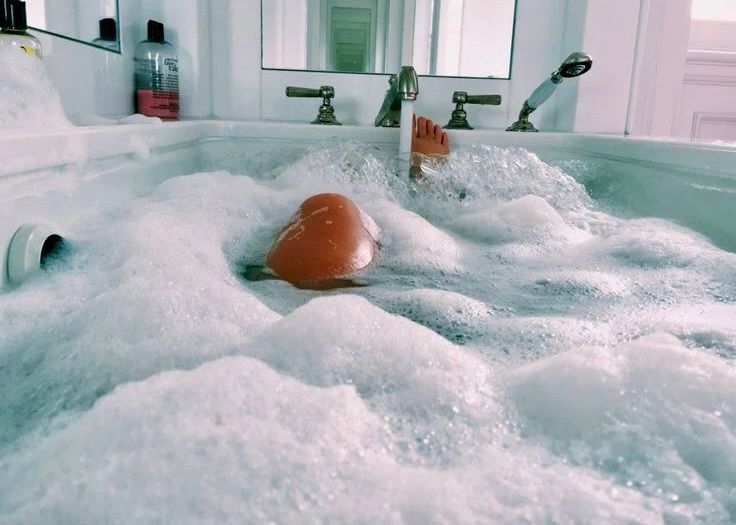Rub a Dub Dub
July 18, 2025
Sign up for blog updates!
Join my email list to receive updates and information.

People bathe for a lot of reasons besides getting clean.
I’m sure you’ve heard by now that we humans are creatures that came from the sea. Which might explain our somewhat batty bathing habits.
It’s getting worse, too. The youngest adults among us, Gen Z (ages 18 to 27) spend
the longest time in the shower – nearly twice the average 12.3 minutes of baby boomers (ages 60 to 78).
Pulitzer Prize winning naturalist Edward O. Wilson believed that because we evolved in nature, we have a biological need to connect with it.
That makes sense. Our species has historically settled and built our cities near bodies of water. We spend our vacations and our days off sunbathing at beaches.
Simply put, we are biologically meant to bathe, and, while we’re at it, to bask. Both words come from the same Old Norse batha.
One of the greatest virtues of taking a bath is its unique ability to promote physical and mental relaxation – while at the same time juicing our creativity.
Writers, typically a dotty bunch to begin with, are particularly attracted to use the tub as their workspace.
Playwright Oscar Wilde enjoyed lavish baths infused with salts and herbs. He believed that these indulgent moments allowed him to rejuvenate his mind, contributing to his creativity.
Referring to the tranquility of the bath, Wilde once quipped: “We are all in the gutter, but some of us are looking at the stars.”
Henry David Thoreau would often retreat to his bath as a place of contemplation. It was part of his resolve to take to the woods because he wished to live “deliberately.”
In her Pulitzer-Prize-winning, autobiographical novel, The Bell Jar, Sylvia Plath wrote: “I am sure there are things that can't be cured by a good bath, but I can't think of one.”
Maybe her husband’s infidelity was the one? Poor, suffering Sylvia opted to end it all by sticking her head in a gas oven rather than soak in a hot bath.
Poet Rod McKuen wrote song lyrics in his bathtub, and Benjamin Franklin took what he called “tonic baths” each morning, working in the nude for an hour to start his day.
Dalton Trumbo, too, wrote in the bath, but at night and not alone. He enjoyed the company of a parrot, a gift from actor Kirk Douglas.
Agatha Christie was another writer who stripped to write. She composed murder mysteries while soaking in her commodious Victorian bathtub – munching on apples, to boot.
Although he himself wasn’t known for writing plays in the tub, Tennessee Williams must have had some fetish about bathing. In “A Streetcar Named Desire,” he has Blanche constantly jumping in and out of the bath (in an attempt to cleanse herself of her past?).
Contemplative and rejuvenating, indulgent and ascetic. The challenge of the bath lies in navigating the Scylla and Charybdis of luxury and discipline.
All this talk about bathing is getting to me. I think I’ll grab a Granny Smith and edit this essay in the tub.
